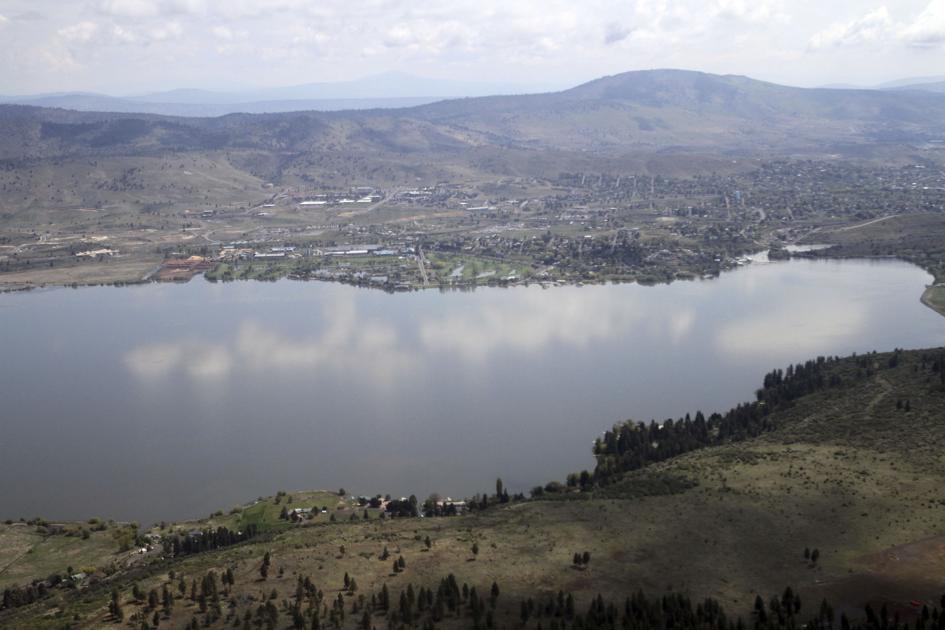
The competing needs of different protected fish species are pitting the Klamath Tribes against the federal government in a court battle with legal implications for Oregon irrigators.
The Klamath Tribes are seeking an injunction to scale back how much water the federal government can release from Upper Klamath Lake to the detriment of endangered sucker species that inhabit it.
The tribes claim the U.S. Bureau of Reclamation has reduced the lake’s water level below the minimum needed for Lost River and shortnose suckers, contrary to the Endangered Species Act’s requirements for operating the Klamath Irrigation project.
“These fish are critically endangered. There are very few of them left,” said Jay Weiner, the tribes’ attorney, during April 26 oral arguments in federal court.
The bureau has prioritized flows in the Klamath river to benefit threatened coho salmon, jeopardizing the survival of the suckers by allowing the lake to fall below levels needed to sustain them, he said.
The suckers are long-lived species and the government is counting on them to again withstand insufficient water levels this year, Weiner said.
“The problem with that is the fish are at the edge of their natural lifespan. There’s no guarantee they’ll be back next year to be able to reproduce,” he said. “We’re conducting a real-time experiment on how far you can push an aging population.”
While a springtime “flushing flow” of the river is meant to lower parasite populations that harm salmon, they face a less dire situation than endangered sucker species in the lake, the tribes argue.
Meanwhile, the bureau has basically given up on assuring adequate water levels in the lake due to this year’s drought, Weiner said. “They said we’re not going to make it, so we’re just not going to worry about it.”
Endangered species are also entitled to greater legal protections than threatened species under federal court precedents, he said. “The needs of the endangered species need to come first.”
U.S. District Judge Michael McShane should prohibit the springtime flushing flow and order that less water be released from Upper Klamath Lake to bring it closer to minimum levels required by the “biological opinion” that guides the project’s operations plan, the tribes argue.
The Bureau of Reclamation argues the tribes have demanded an injunction that favors certain protected species over others when there’s simply insufficient water to meet all their needs.
An injunction isn’t warranted because the scarcity of water is due to natural conditions, not anything the Bureau of Reclamation has done, the agency said.
“Reclamation can’t control the weather. It can’t be blamed for this historic drought,” said Robert Williams, the agency’s attorney. “The lake just never got full.”
The injunction sought by the tribes would undermine management decisions the Bureau has carefully devised with the help of experts at the U.S. Fish and Wildlife Service and National Marine Fisheries Service, the agency said.
The lake’s water level would fall below the minimum regardless of any irrigation diversions, which haven’t yet been authorized due to the current drought, the agency said.
The Bureau claims it’s nonetheless complying with management plans by monitoring the lake’s water level, determining why it’s low and consulting with experts in other agencies on corrective actions.
Even if the agency were forced to curtail the amount of water released from Upper Klamath Lake, that wouldn’t guarantee it would reach target levels later in the summer, the agency said. Meanwhile, that would raise the disease risk for salmon species.
“This is the best the agencies could come up with. Going back to reconsult would not serve any purpose at this point,” Williams said.
The Klamath Water Users Association, which intervened in the lawsuit, fears that an injunction ordering a certain lake level may lead to further curtailments of irrigation water, which will already be scarce this year.
“There will be farms lost this year. It’s just a matter of how many,” said Paul Simmons, the association’s attorney.
The main problem for suckers is not the spawning of larvae but their inability to reach adulthood, which is influenced by predation, disease and water quality rather than lake levels, he said.
“All that hardship for irrigation communities has not done a lick of good for the suckers,” Simmons said.
The Klamath Irrigation District, which also intervened in the case, argues the federal court can’t maintain lake levels by directly prohibiting water diversions by irrigators, since their water rights are under the jurisdiction of state courts and state regulators.
If the federal court does impose an injunction, it can order the Bureau to maintain a higher lake elevation by acquiring water rights, the group said. However, the court’s injunction cannot order the government to take away water that’s been contracted to irrigators.
McShane said he aims to issue a ruling in the case by the end of April or early May.
April 27, 2021 at 02:15AM
https://ift.tt/3vmDW5G
Competing fish needs spark Klamath legal dispute | Oregon | capitalpress.com - Capital Press
https://ift.tt/35JkYuc
Fish
No comments:
Post a Comment